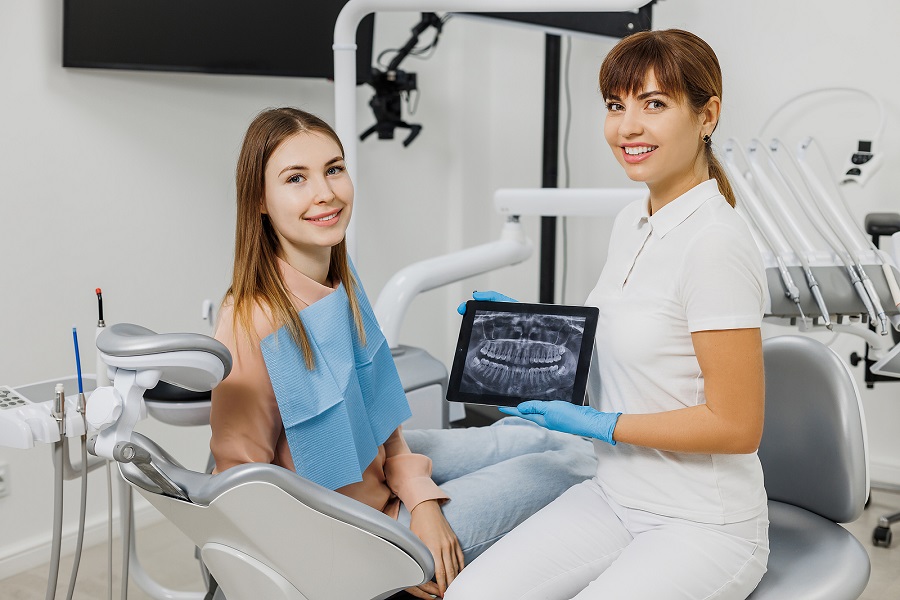Gum disease is more common than you might think, affecting millions of people worldwide. Yet many don’t recognize the warning signs until it becomes a serious issue. Healthy gums are essential not only for a beautiful smile but also for overall health. Ignoring symptoms can lead to painful consequences and even tooth loss.
If you've ever noticed your gums bleeding while brushing or felt discomfort in your mouth, it's time to pay attention. Understanding the causes and symptoms of gum disease can empower you to take action before it escalates. Join us as we explore what gum disease really is, its underlying factors, and why seeing a periodontist for non-surgical gum treatments in Pensacola, FL, could be crucial for maintaining your oral health. Let's dive into this important topic together!
What is Gum Disease?
Gum disease, medically known as periodontal disease, starts with inflammation of the gums. This condition arises when plaque—a sticky film of bacteria—builds up on teeth and hardens into tartar.
Initially, gum disease presents itself as gingivitis, characterized by red, swollen gums that may bleed during brushing or flossing. If left untreated, it can progress to periodontitis. Here, the infection spreads deeper into the supporting structures of the teeth.
Periodontitis can lead to more severe issues like bone loss and tooth mobility. The body’s response to this bacterial invasion results in pockets forming between teeth and gums where bacteria thrive.
Understanding gum disease is crucial for early intervention. Regular dental visits are key in identifying symptoms before they worsen and affect your overall health significantly.
Causes of Gum Disease
Gum disease, also known as periodontal disease, arises mainly from plaque buildup on teeth. Plaque is a sticky film of bacteria that forms when food particles combine with saliva. If not removed through proper brushing and flossing, it hardens into tartar.
Poor oral hygiene plays a significant role in its development. Skipping regular dental cleanings allows harmful bacteria to thrive.
Certain lifestyle choices exacerbate the issue too. Smoking or using tobacco products significantly increases your risk of gum problems.
Nutritional deficiencies can also contribute to gum disease. A diet lacking essential vitamins weakens the immune system, making it harder for your body to fight off infections.
Underlying health conditions like diabetes or hormonal changes during pregnancy further elevate this risk. Understanding these causes is vital for preventing and addressing gum health issues effectively.
Symptoms of Gum Disease
Gum disease often sneaks up on individuals, making it crucial to recognize its symptoms early.
- One common sign is persistent bad breath that doesn’t go away with brushing or mouthwash. This can be a red flag indicating underlying issues.
- Swollen and bleeding gums are also key indicators. If you notice blood when brushing or flossing, it's time to pay attention. Gums should not bleed regularly; this suggests inflammation.
- Sensitivity in your gums can lead to discomfort while eating hot or cold foods. You might also experience gum recession, where the tissue pulls back from teeth, creating gaps that may trap food particles and bacteria.
- Loose teeth could signal advanced gum disease requiring immediate care from a periodontist in Pensacola, FL. Recognizing these symptoms early can make all the difference in preserving your oral health.
Risk Factors for Developing Gum Disease
Several factors can increase your risk of developing gum disease.
- Poor oral hygiene is a primary contributor. Neglecting to brush and floss regularly allows plaque buildup, leading to inflammation.
- Smoking or using tobacco products also plays a significant role. These substances weaken gum tissue and impair healing, making it easier for bacteria to thrive.
- Additionally, certain medical conditions can heighten susceptibility. Diabetes, heart disease, and autoimmune disorders often correlate with heightened gum issues. Hormonal changes during pregnancy or menopause may also affect gum health.
- Genetics cannot be overlooked either. A family history of dental problems could indicate a higher likelihood of experiencing similar challenges in the future.
- Age is another factor; older adults are generally at greater risk due to accumulated effects over time on both teeth and gums. Stress has an impact as well since it can hinder proper immune function, leaving gums more vulnerable to infection.
Importance of Seeing a Periodontist
Seeing a periodontist is crucial for maintaining optimal gum health. These specialists focus solely on the structures surrounding your teeth, making them experts in diagnosing and treating gum disease.
Regular visits can help catch issues early. Periodontists have advanced techniques to evaluate the severity of any problems you might have overlooked.
Gum disease can progress silently, leading to tooth loss if left untreated. A periodontist offers targeted therapies tailored to your specific needs, which may include non-surgical options like scaling and root planing.
They also provide valuable guidance on proper oral hygiene practices that go beyond what a general dentist might offer. This knowledge empowers patients to take control of their dental health proactively.
If you notice warning signs of gum disease—such as bleeding or swelling—it’s vital not to delay seeking specialist care. Early intervention could make all the difference in preserving your smile for years to come.
Treatment Options for Gum Disease
When it comes to treating gum disease, early intervention is key. Non-surgical options often provide an effective solution for those experiencing the initial stages of gum issues.
One popular method is scaling and root planing. This deep cleaning technique removes plaque and tartar from below the gum line, smoothing out rough spots on the tooth roots where bacteria can thrive.
Antibiotic treatments may also be utilized to combat inflammation and infection in deeper pockets around teeth. Your periodontist might prescribe topical antibiotics or oral medications depending on your specific condition.
For more advanced cases, surgical interventions could become necessary. However, many patients find that maintaining regular dental visits and following a tailored treatment plan allows them to manage their gum health effectively without surgery.
Exploring these non-surgical treatments in Pensacola, FL, can lead you toward healthier gums and a brighter smile with proper care. Contact us to learn more.
Prevention Tips to Maintain Healthy Gums
Maintaining healthy gums is simpler than you might think.
- Start by brushing twice daily with fluoride toothpaste. This helps remove plaque and prevent gum disease.
- Flossing is equally important. It removes food particles and plaque from areas your toothbrush can’t reach, keeping your gums happy and healthy.
- Regular dental check-ups play a crucial role too. Your dentist can spot early signs of gum issues before they escalate into something more serious.
- Consider a balanced diet rich in vitamins C and D. These nutrients support gum health and help fight inflammation.
- Avoid tobacco products; they are notorious for harming oral health and increasing the risk of gum disease.
- Stay hydrated! Drinking water keeps your mouth moist, aiding in natural cleaning processes to wash away harmful bacteria throughout the day.
Conclusion
Gum disease is a serious but preventable condition. Recognizing the warning signs early can make all the difference in your oral health journey. If you notice symptoms like swelling, bleeding gums, or persistent bad breath, it’s essential to consult with a periodontist promptly. They specialize in treating gum diseases and can provide various non-surgical gum treatments tailored to your needs.
The causes of gum disease are often linked to poor oral hygiene, but factors such as genetics, smoking, and certain medical conditions also play significant roles. By understanding these contributing factors and being aware of symptoms, individuals can take proactive steps toward maintaining their gum health.
Risk factors should never be ignored; they serve as critical indicators that you may need professional care sooner rather than later. Regular check-ups with a dentist or periodontist will help catch any potential issues before they escalate.
Treating gum disease effectively relies on personalized plans that may include scaling and root planing or other non-surgical options available in Pensacola, FL. These treatments aim not only to eliminate existing problems but also to restore your overall dental well-being.
Don't forget prevention methods either—brushing twice daily and flossing regularly go a long way in keeping gums healthy. A balanced diet rich in vitamins promotes better oral health, too.
Stay vigilant about your gum health by recognizing warning signs early on and seeking help when needed. Take charge of your smile today for healthier gums tomorrow!
For the best dental care, visit Gulf Coast Dental at 1751 W 9 Mile Rd. Pensacola, FL 32534, or call Dentist in Pensacola, FL at (850) 495-6899.

Working Hours
- MON - THU8:00 am - 4:00 pm
- FRI - SUNClosed







